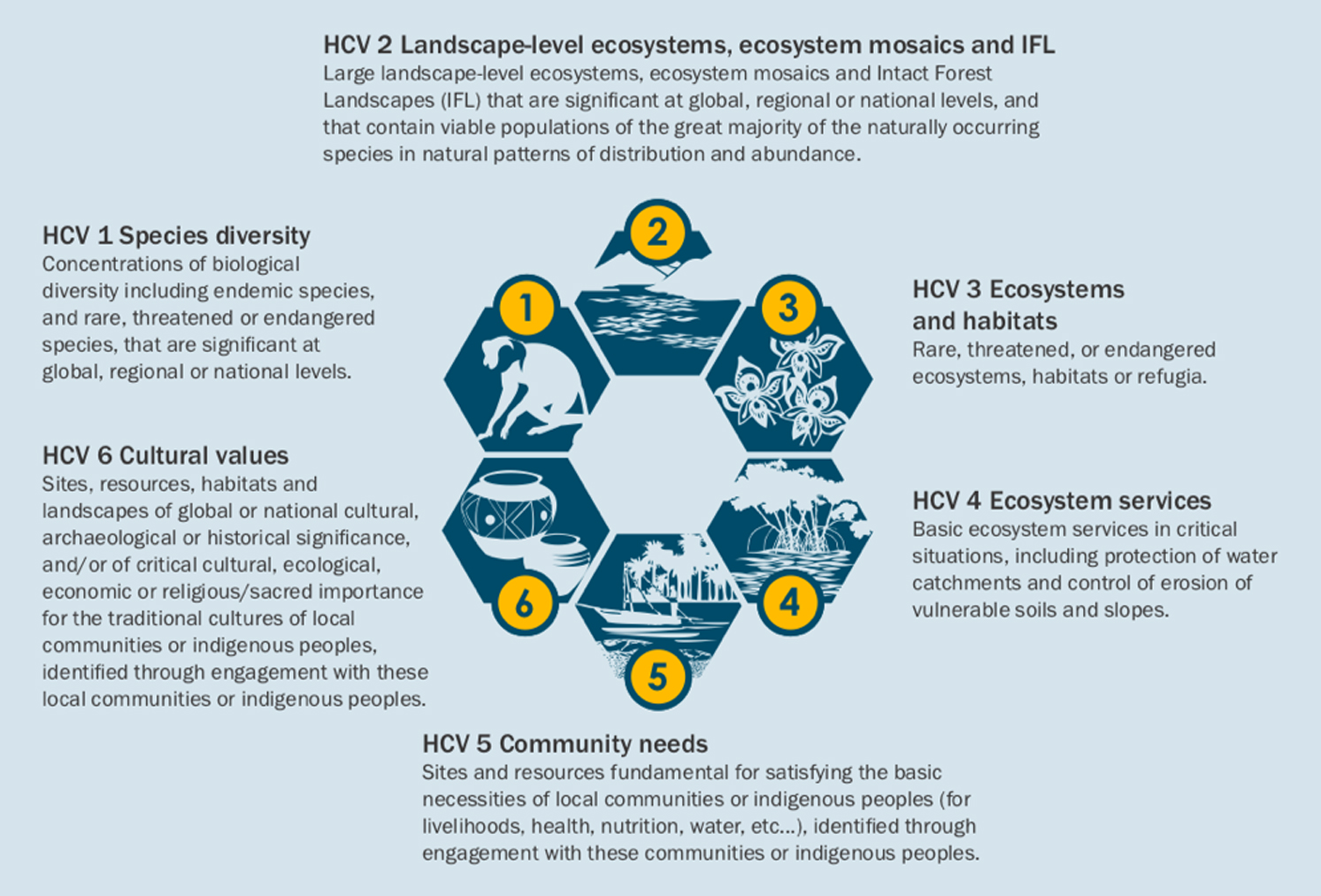Background
The RSPO is committed to the conservation of primary forests and high conservation value (HCV) areas within the context of sustainably managed landscapes, through RSPO Principles and Criteria (P&C) 2018, Criterion 7.12
Additionally, the RSPO New Planting Procedure (NPP), which was first approved by the RSPO Board of Governors (BoG) in September 2009 for implementation from 1st January 2010 further elaborates the requirements for the identification, management, and monitoring of any area(s) required to protect or enhance HCVs.
What are High Conservation Values (HCVs)?
All landscapes possess inherent conservation values, including the presence of rare or endemic species, provision of ecosystem services, sacred sites, or resources harvested by local residents.
HCVs are biological, ecological, social or cultural values that are considered outstandingly significant or critically important at a national, regional or global level. There are six categories of HCVs, as follows:

RSPO Biodiversity and High Conservation Value Working Group (BHCVWG)
The RSPO BHCVWG was established in 2010 to provide strategic and technical advice to support the effective implementation of relevant RSPO P&C.
The BHCVWG will oversee efforts to reach the following overarching objectives or strategically important tasks:
- Ensure effective implementation of the HCV approach to support the production, processing, procurement and use of sustainable palm oil
- Support effective integration of the HCV approach into RSPO P&C, both in the development of new plantations and for existing plantations
- Ensure that biodiversity and HCVs are effectively conserved and monitored over time, and work to advise RSPO Secretariat to address challenges with implementation
- Support the RSPO in the application of the HCV framework by screening, reviewing and improving HCV assessment, management, and monitoring processes
- Support the implementation of the Remediation and Compensation Procedure (RaCP) and improve the procedure accordingly
- Work to ensure alignment, support, and knowledge sharing with national level HCV initiatives
- Provide technical advice to the RSPO Secretariat upon request and feed into BHCVWG-related tasks of other working groups and task forces when required.



